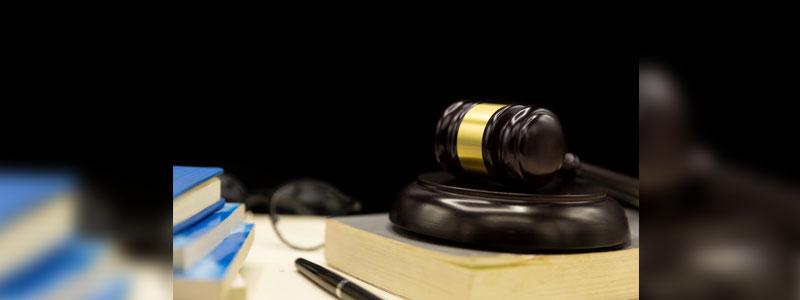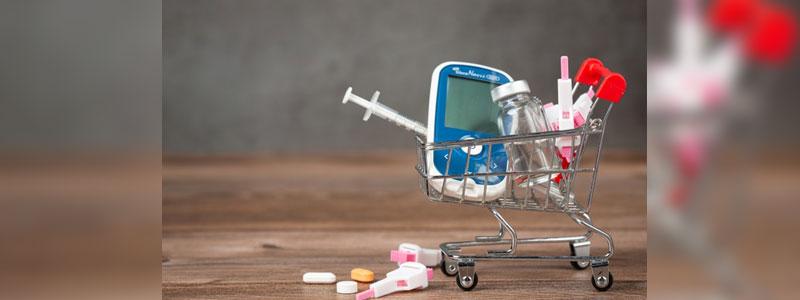What Happened In The MassTorts World Last Week? 2020-Aug-31
Open Bayer Agrees To Pay $1.6B To Settle Essure Lawsuits configuration options
Bayer Agrees To Pay $1.6B To Settle Essure Lawsuits

On August 20, Bayer officials disclosed in a press release that the company had reached an agreement with plaintiff law firms to pay approximately $1.6 billion to settle nearly 39,000 Essure lawsuits that allege the birth control device for causing painful and debilitating complications in women due to its defective design.
The deal is expected to resolve about 90% of all the lawsuits, including the cases filed in the state of California Joint Council Coordinated Proceedings (JCCP) and the cases pending in the Federal District Court for the Eastern District of Pennsylvania (EDPA).
The company had suggested the settlement plan in its second-quarter financial statement issued earlier this month, where it indicated that $1.4 billion was set aside to resolve the lawsuits.
The German pharmaceutical company, in its agreement, noted that it would not admit to any wrongdoing or liability, and the claimants who agree for the settlement will have to drop their pending claims. The other terms of the agreement are being held confidential.
Conceptus Inc., a subsidiary of Bayer AG, developed Essure which is a Class III device for permanent surgical sterilization in women. Essure was approved by the Food and Drug Administration (FDA) on November 4, 2002. The device has two metal coils made from polyester fibers, nickel-titanium, stainless steel, and solder which are placed in fallopian tubes to induce fibrosis and block the fallopian tubes to prevent fertilization. Since 2002, it is estimated by Bayer that 750,000 women have received the Essure IUD.
Essure was suspended from the market in most of the countries since 2017, but Bayer continued to sell the device in the U.S. until the end of 2018. In July 2018, Bayer announced to remove all the Essure devices from the U.S. market by December 31, 2018. Following the removal, the FDA required Bayer to extend the postmarket surveillance study and take measures over the associated problems. Worldwide approximately 750,000 women have been implanted with the device, of which 70% are from the U.S., supervisions estimated by Bayer.
FDA Finds A Rise In Lymphoma Cases Linked To Breast Implants

On August 20, the Food and Drug Administration (FDA) released a report indicating that the number of breast implant-associated anaplastic large cell lymphoma (BIA-ALCL) cases increased by nearly 28% in the second half of last year. Most of the identified cases are specifically linked to the textured design of certain Allergan breast implants.
According to the report, an additional 160 new cases, along with three new deaths have been identified since July 7, 2019. Currently, the data indicates a total of 733 BIA-ALCL diagnoses and a total of 36 patient deaths globally. Out of the known cases where the manufacturer has been identified, 620 are linked to breast implants sold by Allergan, Inc., and in 47 cases, the manufacturers were unknown. Only 16 manufacturers were identified of the 36 deaths, and 15 of those involved Allergan implants.
The report also includes an update on other health problems linked to breast implants, known as “breast implant illness," along with new diagnostic methods for assessing BIA-ALCL and other breast implant issues. A video guide has also been released about the information that patients should know about breast implants.
Earlier this month, Allergan filed a motion seeking dismissal of lawsuits involving its Biocell textured breast implants on pre-emption grounds, claiming that the company should not be held liable over the failure to warn claims.
Allergan Inc.’s breast implants include saline and silicone devices used in breast augmentation and reconstruction. The company is one of the largest breast implant manufacturers in the world and started selling breast implants in 2006. Allergan’s flagship breast implant brand is Natrelle, but it also sells implants under its subsidiaries Inamed and McGhan. The manufacturer received approval from the FDA on 11/17/2006.
Currently, Allergan faces at least 150 product liability lawsuits and class action lawsuits over breast implant cancer problems. The lawsuits have been consolidated to form multidistrict litigation (MDL) before U.S. District Judge Brian R. Martinotti in the District of New Jersey under MDL No.: 2921. Also, lawsuits filed in New Jersey are consolidated as part of multicounty litigation (MCL) in the New Jersey Superior Court for Bergen County, where the claims are presided by Judge Rachelle Harz for coordinated discovery and pretrial proceedings.
Bard Hernia Mesh Suits To Exceed 10,000 Before First Trial

U.S. District Judge Edmund A. Sargus, presiding over all Bard hernia mesh lawsuits, indicated that the number of cases against the manufacturer would likely be at least 10,000 before the first bellwether trial that is scheduled for January 2021.
Judge Sargus noted the rise in a pretrial order issued on August 14 and indicated that the first bellwether trial, currently scheduled to begin on January 11, 2021, may be rescheduled as the court has another case scheduled for February 2021, which may impact the ability to start the bellwether trial as planned.
The lawsuit that will be the first to go before a jury alleges that the plaintiff experienced complications with Bard Ventralight ST mesh, a type of polypropylene patch involved largely in other claims pending in the litigation. The trial, which was originally scheduled to begin in May 2020, has been pushed back from September 2020 to January 2021 due to the interruptions caused by the ongoing COVID-19 pandemic crisis.
The mesh products named in the lawsuits contain polypropylene material, which can easily break, shrink or wear off. This often leads to device migration, organ perforation, infection, and several other complications. Lawsuits allege the defective design of the hernia mesh often required the patients to undergo additional correction surgeries.
Currently, C.R. Bard faces more than 8,000 product liability lawsuits over hernia mesh products, which include Bard’s Ventralex, Ventralight, Perfix, 3DMax, and other patch designs. Bard hernia mesh claims are consolidated under federal multidistrict litigation (MDL) No. 2846 in the Southern District of Ohio, presided by Honorable Edmund A. Sargus, Jr., and Honorable Kimberly A. Jolson.
FDA Lifts Amputation Risk Boxed Warning From Canagliflozin

On Wednesday, the U.S. Food and Drug Administration (FDA) issued a report indicating that it has lifted a Boxed Warning about amputation risk from type 2 diabetes drug canagliflozin, marketed under the brand names Invokana, Invokamet, and Invokamet XR.
Invokana (Canagliflozin) is a drug used for the treatment of type 2 diabetes. It was developed by Mitsubishi Tanabe Pharma and is marketed under license by Janssen, a division of Johnson & Johnson in the United States. The FDA approved Invokana on March 29, 2013, for the treatment of type 2 diabetes.
The Boxed Warning was required by the FDA in 2017 after it found that the risk of amputations was very serious over the potential benefit of canagliflozin, which was initially approved to lower blood sugar in adults with type 2 diabetes. The current lift is based on a review of new data from three clinical trials, which also demonstrated additional heart and kidney-related benefits, leading to additional approved uses.
The recent clinical trials also note that the risk of amputation increases with canagliflozin but is lower than previously described when monitored appropriately. The information is removed from the Boxed Warning, but it is still described in the Warnings and Precautions section of the prescribing information.
The FDA also advised that health care professionals and patients should continue to recognize the importance of preventative foot care and consider the risk factors when choosing antidiabetic medicines.
In June, the consumer rights advocacy group, Public Citizen, filed a petition with the FDA asking to add stronger warning labels for the type 2 diabetes drugs, stating that the agency must explicitly oppose the use of these drugs for patients with Type 1 diabetes as the drugs are linked to serious and potentially life-threatening cases of diabetic ketoacidosis.
Several Invokana lawsuits were filed in courts nationwide against the manufacturer Johnson & Johnson and its subsidiary Janssen Pharmaceuticals Inc., most of which have been settled.
Roundup Deal: Plaintiffs Raise Concerns; Judge Casts Doubt

On Thursday, U.S. District Judge Vince Chhabria, overseeing the Roundup multidistrict litigation docket, indicated that he might lift the stay on litigation after hearing concerns from plaintiffs' attorneys over the uncertainty of the more than $10 billion deal.
In June, the German chemical and pharmaceutical giant, Bayer, indicated that it would pay more than $10 billion to settle about 75% of the lawsuits claiming that its herbicide Roundup was the cause of non-Hodgkin’s lymphoma. Following the announcement of the deal, which is managed by mediator Kenneth Feinberg, Judge Chhabria halted the multidistrict litigation for the settlement process.
In July, Judge Chhabria had raised concerns over one part of the deal, which includes a plan for handling future claims brought by the consumers who develop non-Hodgkin’s lymphoma, after using the weedkiller. He indicated that he is skeptical of the propriety and fairness of the proposed settlement, and is tentatively inclined to deny the motion.
In the recent hearing, Judge Chhabria stated that he received several confidential letters alleging the manufacturer of reneging on its deal with the plaintiffs. After hearing arguments from both parties, he concluded that he would not lift the stay expressing his confidence in Feinberg’s ability to reach a resolution in 30 days. But he also noted that the parties should also start reworking on getting the litigation back on track as he won't extend the stay any further. The parties have been asked to be prepared by the next case management conference that is scheduled for September 24.
Roundup, one of the most commonly and widely used weedkillers, contains Glyphosate as one of its main ingredients. Glyphosate is a systemic and broad-spectrum herbicide that was patented by a U.S. company, Monsanto, in 1970. Bayer acquired Monsanto on June 7, 2018.
Currently, Bayer is facing more than 125,000 Roundup lawsuits, and the company has acknowledged the filing of 52,500 lawsuits. The lawsuits are consolidated under MDL No. 2741 in the U.S. District Court for the Northern District of California.

